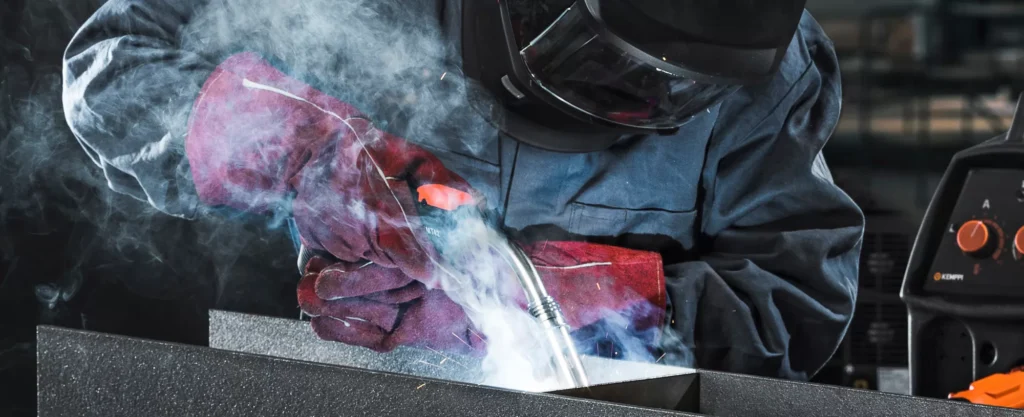Welding is a process that involves a lot of heat, smoke, and toxic fumes. If you regularly work with welding tools and equipment, it’s essential to prioritize your health. Welding illness refers to the various health problems that can arise from welding exposure. These can range from respiratory distress to cancer. However, there are many things you can do to prevent welding illness. In this article, we’ll discuss some of these preventive measures.

Use Protective Gear
The first step to prevent welding illness is to use protective gear. Some of the protective gear you need to put on include safety glasses, respiratory masks, and gloves. Welding produces toxic fumes that can cause respiratory illnesses such as asthma, emphysema, and lung cancer. Respiratory masks filter out the fumes you breathe in, preventing them from harming your lungs. Safety glasses and gloves protect your eyes and hands from harm.
You also need to put on protective clothing such as a welding jacket, pants, and hat. These clothes are designed to be flame resistant and offer protection against sparks and direct heat. Exposure to UV rays from welding can also cause skin cancer. Protective fr clothing is an easy and effective way to prevent skin damage.
Ventilation
Welding produces gases and fumes that can be harmful to your health, even if you’re wearing protective gear. That’s the reason why you need proper ventilation while welding. Proper ventilation helps to keep the welding area free of harmful gases and fumes. It also helps to reduce the risks of suffocation and explosion.
There are various types of ventilation systems that you can use during welding. They include local exhaust, general exhaust, and mechanical ventilation. Local exhaust refers to systems that remove fumes at the point of creation. General exhaust removes fumes from the entire workshop. Mechanical ventilation entails the use of fans to remove fumes.
Proper Training
Most people think of welding as an easy and straightforward job. However, it requires proper training to prevent accidents. People who are not adequately trained to handle welding tools and equipment pose a risk to themselves and others around them. They might start a fire, electrocute themselves, or even cause an explosion. That’s why it’s essential to get proper training before you start welding.
Proper training in welding involves getting familiar with the tools and equipment, knowing how to use them correctly, and being aware of the potential dangers. You’ll also learn about the best practices in welding, safety measures, and how to maintain your equipment. All these things will help you to prevent welding illness and accidents.
Keep a Safe Distance
Welding produces sparks and smoke, which can be harmful, even if you’re wearing protective gear. As such, you need to maintain a safe distance between yourself and the welding area. The recommended safe distance is at least 35 feet. This will help to reduce your exposure to UV rays, fumes, and smoke.
If you can’t maintain a safe distance, install a welding screen. A welding screen is a portable barrier that you can place between you and the welding area. It’s made of flame-resistant materials that can withstand sparks and heat.
Regular Maintenance
Regular maintenance of welding equipment is an essential preventive measure. Defective welding equipment is a hazard that can cause accidents, fires, or explosions. Make sure you regularly check your equipment, including cables, clamps, and ground connections, and replace any defective parts.
If you’re not sure how to maintain your welding equipment, consult the owner’s manual, or seek the help of a professional. Regular maintenance will help to ensure your equipment is in good working condition, reducing the risks of accidents or illness.
In summary, welding illness is a serious issue that requires careful attention. The preventive measures outlined in this article can help to reduce your exposure to harmful fumes, UV rays, and sparks. Remember to use protective gear, maintain a safe distance, get proper training, and exercise caution when operating welding tools and equipment. With these measures in place, you can enjoy a long and healthy welding career.


